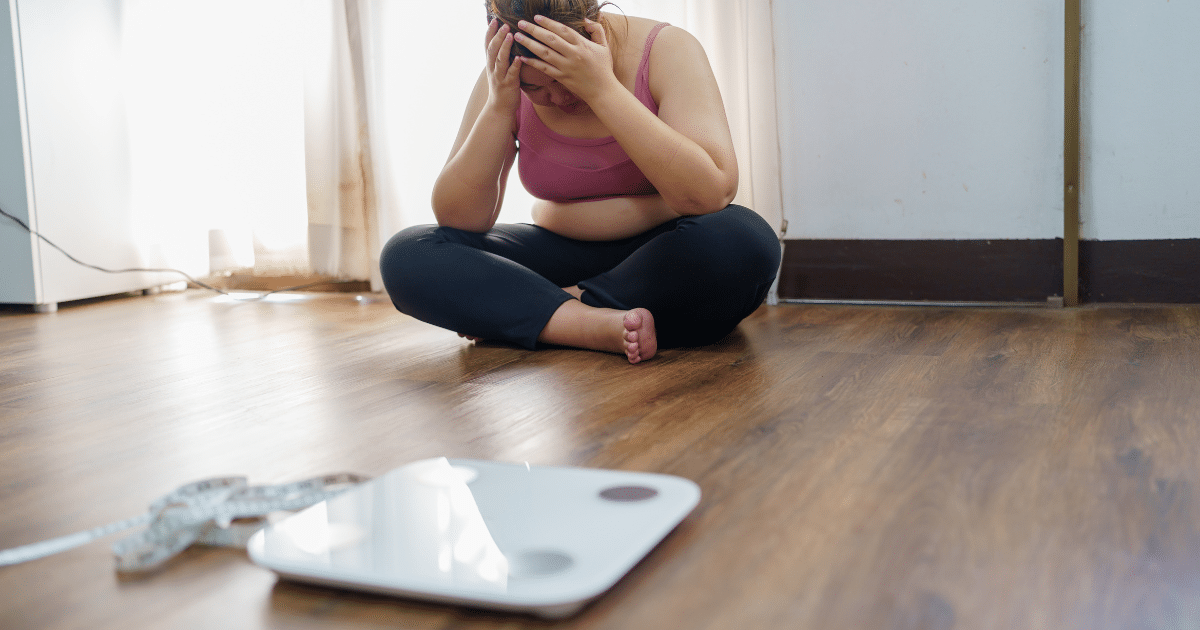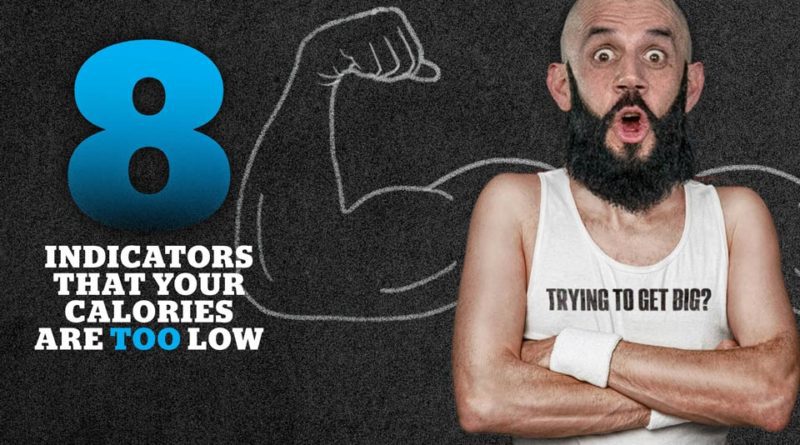8 Indicators that Your Daily Caloric Intake is Too Low
Are you trying to lose weight? Do you know what your daily caloric intake should be to lose weight effectively? Are you tracking your nutrition on an app like MyFitnessPal? If the answer to those two questions is “no,” I would strongly suggest following this article, you go download the app and get your daily caloric intake squared away.
With all of that being said, there are several indicators that your daily caloric intake is too low. Below, you will find the eight most common. If you read any of the below and find yourself raising your hand that you feel that way or are experiencing what is described, your daily caloric intake could be too low.
Disclaimer: This article is for informational purposes only and is not meant to treat or diagnose any condition. It is recommended that you speak with your doctor before starting any exercise program, changing your daily nutrition, or adding any supplements to your regimen.
Table of contents

8 Signs That Your Daily Caloric Intake is Way Too Low
Do you suffer from these weight loss pitfalls below? If so, it means your daily caloric intake is too low.
1. Your Weight Loss Progress Has Stalled
Opposite of what is typically assumed is the fact that if your daily caloric intake is too low, it could stall your weight loss progress. Sure, consuming higher than your maintenance could lead to weight gain, but dipping too low with your calories can slow your metabolism and put your body into starvation mode where anything you consume will be stored since your body will automatically transition into a survival mode.
The goal is only to decrease your calories when the current level is no longer providing you with any progress. Reducing your daily caloric intake too much too soon can drastically slow your weight loss progress.
2. Your Energy During Workouts is Low
When you hit the gym, do you feel completely worn out and lack energy? Do you struggle to get through your whole workout? It could be an indicator that your calories are too low. Not only are you not fueling your body with enough calories to energize you through your workouts, but your blood sugar could also be low, which would send your energy on a downward spiral.

While you still want to be in a caloric deficit with your daily caloric intake, it needs to be done in a healthy manner. On days where you have a workout scheduled, you’re going to want to plan one of your meals around an hour or two before your workout. Your body then has the ability to utilize what you ate as fuel so you can train hard.
3. You’re Unusually Moody
If your daily caloric intake is too low, on top of your energy levels being down in the dumps, so will your mood. You may find even the smallest thing sets you off into a tirade as if the world was ending. It may cause you to sit back and ask yourself what just happened – it’s out of character and not you.
Low calories can alter brain chemistry and hormones. When this happens, your mood will shift – and not for the better. This can especially become apparent when you drastically decrease your carbohydrates, thinking it’s the best option for weight loss (which it’s not always the case and is very individualized from person to person).
4. You’re Suffering from Brain Fog
Not providing yourself with enough calories and energy can affect your cognition and mental performance. When your daily caloric intake is too low, you may find yourself in what’s described as a “brain fog.” This is where you seem to be in a constant daze, you can’t focus, you forget things, you’re easily distracted, and aren’t as productive.

Rather than dropping your daily caloric intake quickly, do it slowly and allow your body to get accustomed to the lower amount of energy coming from your food intake. Too quickly will absolutely shock the system and put you in an altered mental state.
5. You’re Always Tired
Something interesting with a low daily caloric intake is that an indicator is that you’re always tired. While you lack energy and are exhausted, the peculiar thing is that you’ll also find you can’t sleep. Odd, right? You’re tired but unable to sleep. The tired part comes from the decrease in energy coming from your lack of daily caloric intake, but the low caloric intake can also negatively affect your sleep cycles – which won’t allow you to fall asleep, and if you do, you’ll find it hard to stay asleep.
Sleep is incredibly important for recovery as well as mental and physical performance. If you aren’t getting enough sleep, your energy levels will decrease further, your cortisol levels (a stress hormone) will go up, which can increase fat storage, and your ghrelin levels (a hunger hormone) will also increase and can cause you to be hungry all of the time.
6. You’re Always Hungry
The combination of lack of nourishment and sleep will raise your ghrelin levels. As mentioned in #5, ghrelin is a hunger hormone. It’s what tells your brain that you need food. This isn’t bad if leptin (a satiating hormone) could just as quickly swoop in after you start eating and tell your brain that your stomach is full. Unfortunately, in the state you are in with your daily caloric intake being low, that doesn’t happen.

The end result is that you’re hungry – ALL DAY LONG. Or, this is commonly referred to as being HANGRY. You’ll find yourself thinking about food nearly all of the time, and every piece of food you see, you may get the urge to eat. You may find you become obsessed with food to the point you start watching the Food Network religiously and cutting out recipes you see in magazines or print them from the internet.
7. You’re Constipated
Yes, a little disturbing to think about, but due to your lack of energy from having your daily caloric intake too low, your digestion can slow down due to a lack of energy to go through its processes. What this can lead to is constipation since food is no longer passing through the digestive tract efficiently.
In addition, your lack of food intake could mean you aren’t taking in enough fiber. Fiber is vital in keeping you “regular” with your bowel movements. An indication that you are constantly constipated could be an indicator your caloric intake is too low.
It should also be noted that when dieting, you want to focus on fiber intake as it is what can help keep you satiated throughout the day.
8. You’re Ready to Give Up on Your Weight Loss Goal
If you were to take all seven of the indicators mentioned above and bottled them up into 24 hours, it’s easy to see why so many people want to give up due to their daily caloric intake being too low. It doesn’t sound like fun, right?
That’s why it’s so important to know your numbers and decrease your caloric intake little by little to ensure you are still progressing but without dropping your calories so quickly that you suffer from the above.
Again, know your numbers and track your nutrition. You don’t know what you don’t know, and by tracking your food, you can ensure you don’t fall victim to the negative indicators listed in this article.


*Disclosure: This article may contain affiliate links or ads, which means we earn a small commission at no extra cost to you if you make a purchase through these links. These commissions help support the operation and maintenance of our website, allowing us to continue producing free valuable content. Your support is genuinely appreciated, whether you choose to use our links or not. Thank you for being a part of our community and enjoying our content.
PLEASE CONSIDER SHARING THIS ON YOUR SOCIAL MEDIA TO HELP OTHERS LEARN MORE ABOUT THIS TOPIC. SIMPLY CLICK BELOW!

